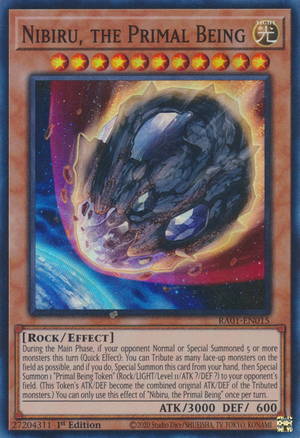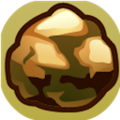Rock

Rock (
Contents
Overview[edit]
Rock monsters are typically representing the embodiment of Earth element. They mostly appear as creatures made of dust, sand, rocks or other minerals, such as gemstones. Golems are also common creatures that represent the 'people' among Rock monsters. Many also appear in the form various inanimate objects such as statues, idols, charms, jars, totems, or structures (as represented by "Castle Gate"). It could even take form as a complete building, like "Number 68: Sanaphond the Sky Prison", "Utgarda, Generaider Boss of Delusion", and "Skyfaring Castle of the Black Forest".
A few Rock monsters, however, take appearance visually as humans; this might happen in an archetype that was meant to have all monsters within the group to be a single Type, such as "Adamancipator". The other case is the "Monk" series that includes "Monk Fighter" and its upgraded form; the reason might because monks are typically shown to have extreme physical strength and endurance, close to that of rocks.
Usually, Rock monsters belong to the EARTH Attribute and possess high DEF and defense-related card effects. A significant number of Rock monsters (especially during the early days) have effects related to Flip Summoning or have the ability to flip themselves face-down again. While later Rock monsters are now geared towards milling their own cards to trigger certain effects in Graveyard or to use them as a resource later on.
Themes[edit]
TCG/OCG[edit]
|
Rush Duel[edit]Anime/manga-only[edit] |
Appearance in media[edit]
The following characters use Rock monsters across the Yu-Gi-Oh! franchise.
Anime[edit]
Icons[edit]
These are icons used to represent the Rock Type in various video games. They mostly depict either a simple boulder or "Giant Soldier of Stone".
In other languages[edit]
| Language | Name | Romanized |
|---|---|---|
| French | Rocher | |
| German | Fels | |
| Italian | Roccia | |
| Portuguese | Rocha | |
| Spanish | Roca | |
| Japanese | Ganseki | |
| がんせき (kana) | ||
| 岩石 (base) | ||
| Korean | 암석 | Amseok |
| Chinese (Traditional and Simplified) | 岩石 | Yánshí |









